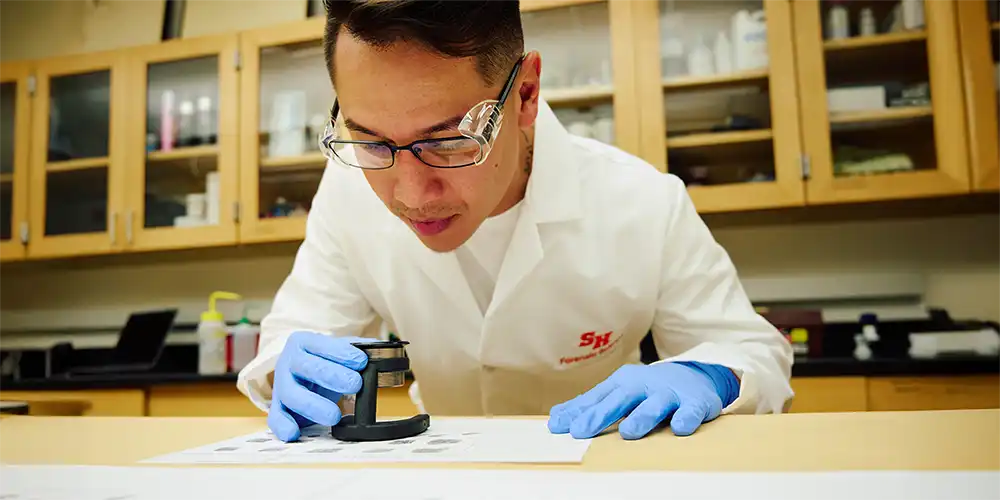Capstone Experience

The Capstone Experience
All students are expected to conduct the research independently, prepare a written report, and present the results of the research in a public forum prior to graduation. The research component of the program often includes preparatory coursework in research methods and statistics. The ideal research project is well-defined, stands a reasonable chance of completion in the time available, and requires the student to use the advanced concepts and a variety of experimental techniques and instruments. Research in forensic science advances the body of knowledge and elevates the status of the profession.
The capstone course allows students to specialize within the discipline of interest and develop their problem-solving, time management and project management skills. Most students find this to be the most challenging program experience.
Students select a faculty advisor within their discipline during the first year. Upon completion of the internship during the summer between the first and second years, students conduct their capstone research during the subsequent fall and spring semesters. They present a formal research proposal orally at the end of the spring semester of year two. During the second year of study, students receive written and verbal feedback on performance. Students are encouraged to submit work of sufficient standard for publication and/or presentation at regional and national scientific meetings.
View a comprehensive list of previous capstone Research topics
PhD Portfolio, Qualifying Examination and Dissertation
Students accepted into the PhD program must prepare a research assessment portfolio based on departmental guidelines. As part of their portfolio, students will create a formal written proposal of publishable quality describing their intended research. Such a proposal shall include a detailed description of the research design and methods, implications of the proposed research for forensic science policy and practice in the United States, research design and methodology, limitations and a review of the relevant literature. This research proposal must be submitted and orally defended in a Qualifying Examination before the student can be admitted to Doctoral Candidacy and proceed to Dissertation research.
Students are not required to take a written comprehensive exam; however, they must demonstrate their potential through research, technical writing, and scholarly inquiry, including performance on a general knowledge oral examination during the qualifying process.